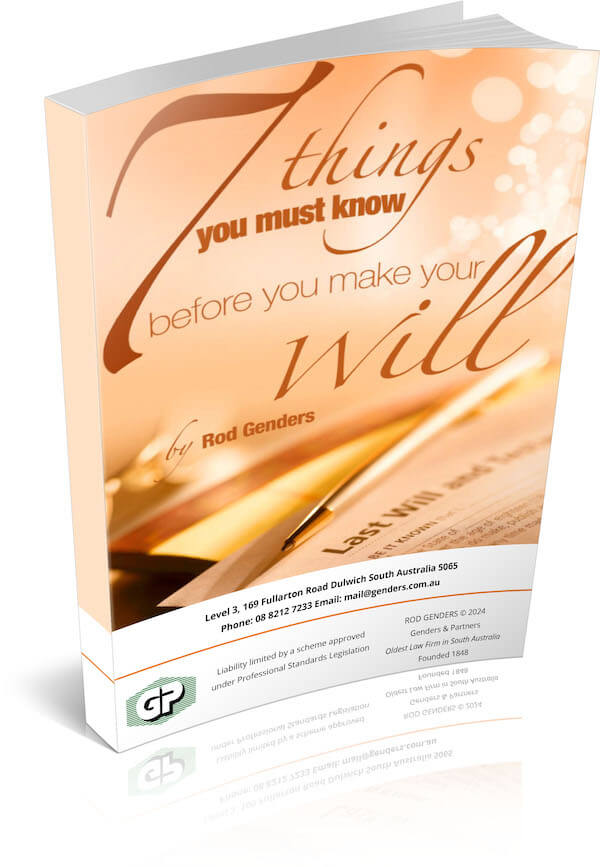Each year, our average life expectancy continues to increase.
And yet, more than half of adult Australians do not have a legal Will, and even fewer have an integrated estate plan.
Life used to be simpler. People worked for the same employer for their entire career.
They had government-guaranteed pensions. Medical expenses were manageable. Divorce was rare and remarriages rarer still.
25 years ago, when my legal career began, I can clearly recall the expression “broken home” being used as an excuse for various misconduct. Most people were not invested in the stock market.
But, the trade-off was that although life was simpler, it was also significantly shorter. Retirement didn’t last long, so people didn’t worry as much about having sufficient savings to last a lifetime. Long periods of incapacity were unusual. You worked, then you died.
When the Australian Government began the aged pension in the 1920’s, they set the age-of-eligibility at 65 for men.
At that time, the average life expectancy for men was only 63, so the Government did not expect to have to pay out much for the pension, nor medical treatment, aged care or publically assisted accommodation.
Today we’re living longer than ever. This presents challenges our grandparents didn’t have to face. And that’s why your estate plan can’t be the same as your grandparents’ estate plan.
Elder law addresses not only leaving a legacy, but living your life.
As a lawyer specialising in estate planning, I try to educate my clients about modern integrated estate planning, which assists & protects during your life, as well as after your death.
If you think all you need is a simple Will, you really should think again. A Last Will and Testament only has effect once you are dead. Have you thought about your life planning?
What about establishing an Enduring Power of Attorney and a Medical Power of Attorney, so someone can make legal, financial and medical decisions for you if you are incapacitated.
And since there’s no guarantee we will be able to enjoy good health, mobility and independence throughout all our extra years, have you taken steps to protect yourself against the costs of long-term nursing care?
Have you purchased long-term care insurance, or thought about planning in advance if you ever need to tap into Veterans Affairs, Centrelink or Medicare benefits?
What if you (like the majority of us) suffer declining health in your later years? Have you taken control of your affairs to plan for contingencies? Have you considered end-of-life decisions and the possible need for guardianship?
Well, you’d better. Because the statistics say that we’re living longer, but we’re needing more help to do it, as well as more money.
What does all this have to do with Star Trek? Well, it so happens that the actor Leonard Nimoy will turn 80 next year.
He will probably be remembered by most of us as Spock, the highly logical Vulcan in Star Trek. His catch-phrase was “Live Long and Prosper”.
With appropriate planning, that slogan can reflect our new, longer lives: Live Long and Prosper. But you have to plan for it.
Rod Genders is a senior Australian lawyer specialising in accident compensation and estate planning in Adelaide. His boutique specialist law firm is one of the oldest and most respected in Australia – visit it at www.genders.com.au . Rod is also a prolific author and speaker.
Some of his articles and books on Wills, Probate, Trusts, Estate Planning, Asset Protection and Retirement Planning may be found at www.genders.com.au/adelaide-lawyer-blog
SPECIAL REPORT “7 Things You Must Know Before You Make Your Will”
In this report you will Learn:

Why home-made Wills can be a LOT more expensive than you might think.
The secret weapons used by the rich & powerful to protect their assets, and transfer their wealth two or three generations ahead.
How Estate and Trustee Companies make BIG money from “free” Wills.
The Most Common Estate Planning Mistakes, how they can cost your family a fortune, and How to Avoid Them.
The Elements of a Sound Estate Plan – why a Will alone is not enough.
How to Make Sure Your Assets Stay in Your Family and are not lost to creditors, lawsuits or ex-spouses.
How to guard against challenges to your Estate after you’re gone.








